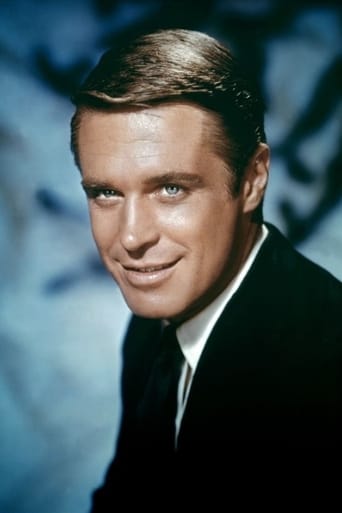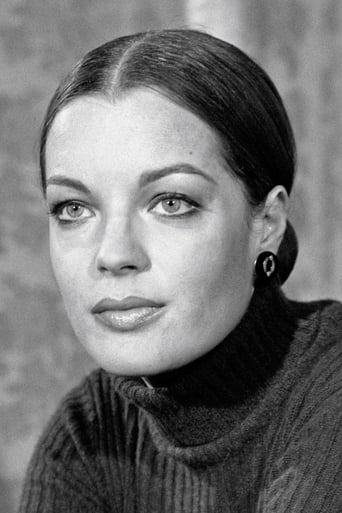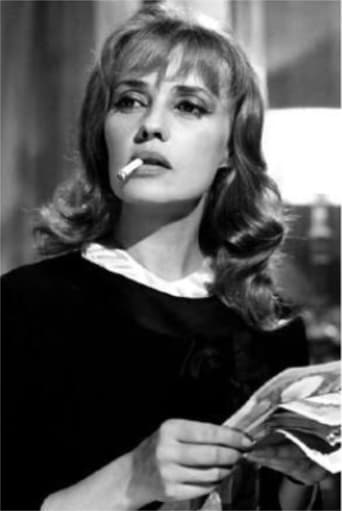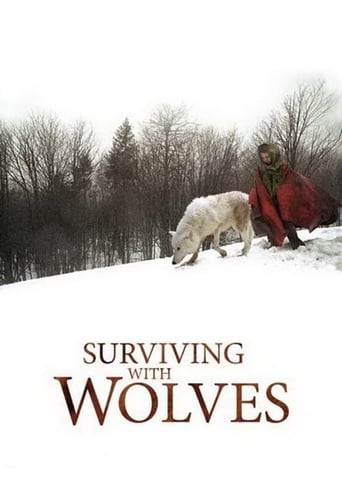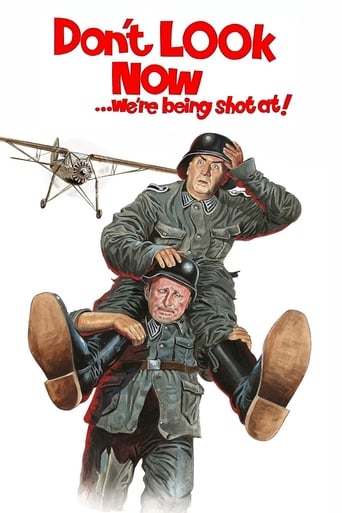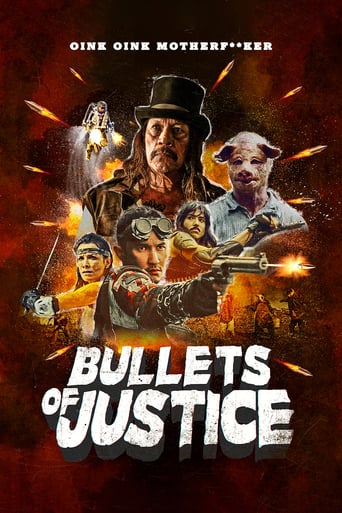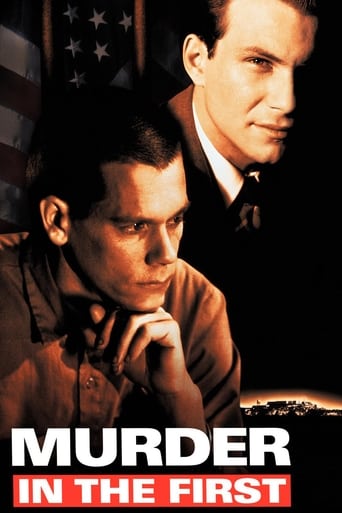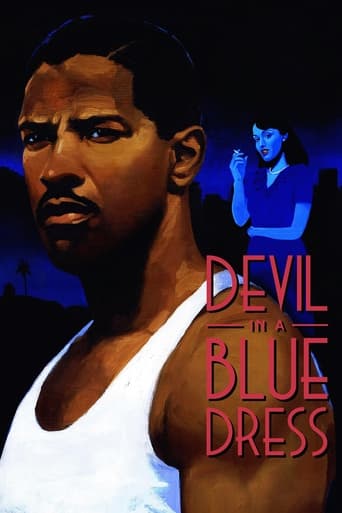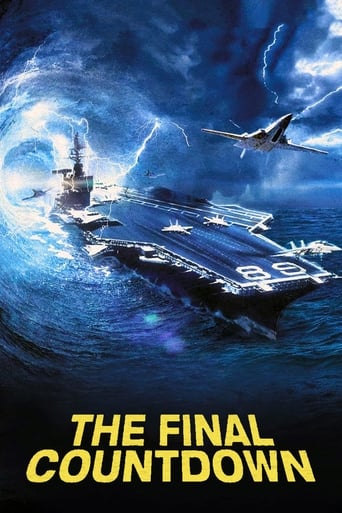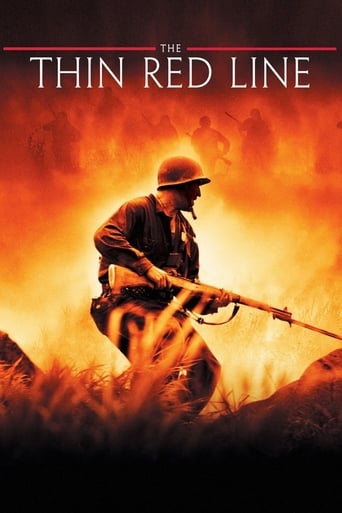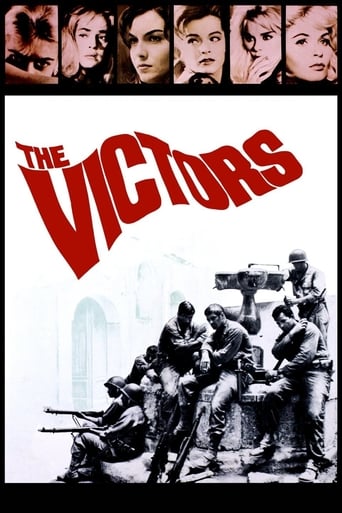
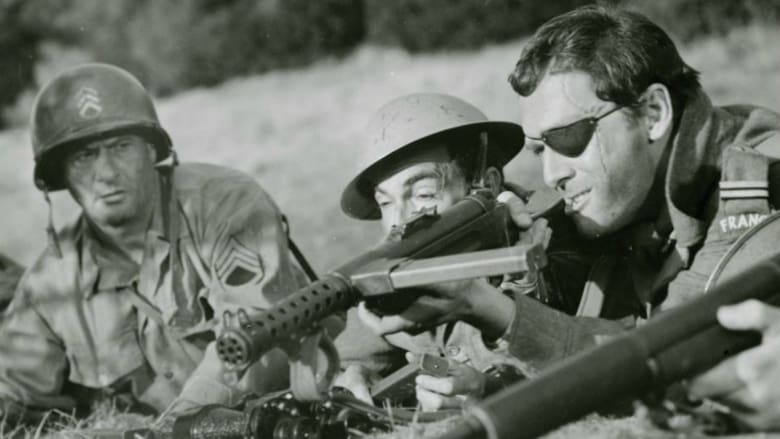
The Victors (1963)
Intercutting dramatic vignettes with newsreel footage, the story follows the characters from an infantry squad as they make their way from Sicily to Germany during the end of World War II.
Watch Trailer
Cast
Similar titles
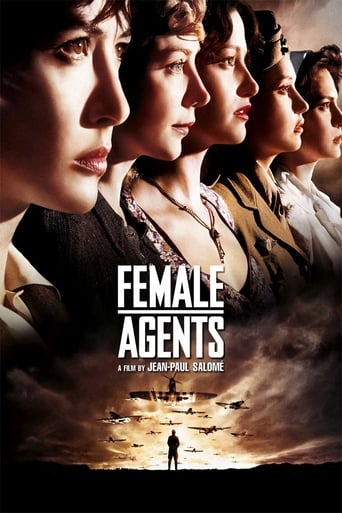
Reviews
Such a frustrating disappointment
This is a coming of age storyline that you've seen in one form or another for decades. It takes a truly unique voice to make yet another one worth watching.
There's no way I can possibly love it entirely but I just think its ridiculously bad, but enjoyable at the same time.
what a terribly boring film. I'm sorry but this is absolutely not deserving of best picture and will be forgotten quickly. Entertaining and engaging cinema? No. Nothing performances with flat faces and mistaking silence for subtlety.
I decided to see this film again, and now know why I forgot it was ever made. Cheap explosions, chunks of history ignored, and more women than every other 60s war films put together for what !!?? How on earth it gets such a high rating beggars belief, as it is presented in the most wooden way possible. A dreadful mess of a so called war drama, that looks so dated now. Better to watch paint dry, as this is one of the worst war films I have ever seen. Believe the other reviews at your peril......be afraid very afraid of wasting your time !!..!!!!!!!!!
"The Victors" is a 1963 war movie with very little combat action. A couple of short scenes are all we see of any engagement. This film is more of a drama set in the midst of World War II in Europe. It follows a few men of one squad in the U.S. Army, especially their encounters with half a dozen women, from Italy to Germany. The DVD I bought headlines the women. The front cover reads, "The six most exciting women in the world in the most explosive entertainment ever made!" Well, Hollywood ballyhoo aside, it's a so-so gloomy anti-war film. It portrays various types of GIs and the women they might meet in war. It has different scenarios of wartime "romance." Those scenes are interspersed with snippets of movie newsreels and scenes designed for shock. The ongoing drumbeat of the futility of war might leave one with a sense that these GIs are all heartless warmongers. A number of things about this film don't seem plausible. It isolates one squad so that we never see them with a platoon or company, or alongside other men in combat. Unless they are bunked down in tents in a rest area, or in town on a furlough behind the lines, we see them only on isolated assignments. It's just their squad. Besides the focus on non-combat moments, "The Victors" seems to paint this group of GIs as goof-offs, incompetent, and unruly soldiers. In one situation after another, Sgt. Craig has to get them back in line. I wonder how many squads assigned to guard a vineyard estate would, each member, head for the cellars to get drunk. How many GIs would be so stupid as to all lay down their arms in a town in a combat area and start going through shops looking for souvenirs and gifts? These were supposed to be troops who had been in combat. They had seen fellow GIs killed. The producers made an anti-war film, and in the process they painted most of the GIs as real dummies. Without a perspective of why they are at war and how they got there, it's hard for us to have empathy for the men. Even the plight of the women evokes little empathy with such dark overtones. There are a few scenes in which there is a spark of kindness, decency, or care. But they seem awkward in the plot. The story seems to end in a hurry. It seems choppy with two of the stars being injured but our not knowing about it until we see them in a hospital. Again, the lack of action to portray the injuries leaves this film short. It clearly is a surrealistic film. If the anti- war message isn't clear early on, the scene of the squad watching the execution of an American deserter should open one's eyes. The men don't learn the soldier's name in the movie, nor does the film say who it was. But we know from history that they would have been witnessing the death of Pvt. Eddie Slovik on Jan. 31, 1945. He was the only American executed for desertion in WW II. His story is interesting. He was an ex-con who arrived in France as a replacement in early 1944. The details of his desertion are unusual. The Army offered to drop charges. Army brass several times offered to let him return to his company in France. But, Slovik thought he would just be convicted and go to prison and that would keep him out of combat. He kept insisting that he would continue to run away. His court martial condemned him to death by a firing squad. With combat still going on and desertions rising, the Allied commanders had to set an example and warning. So, Slovik condemned himself. But none of that, of course, comes out in this movie. The cast includes some of the young male stars of the day. There's no single lead in the film. Four men have most of the scenes. George Peppard is Corporal Frank Chase who early on loses his stripes. Eli Wallach is Sgt. Joe Craig. George Hamilton is corporal and then sergeant Theodore Trower. Vince Edwards is Pvt. George Baker. The promo of the film has Albert Finney among the first stars listed. But, his part is very small – if memorable, as a Russian soldier at the end. A few other men have interesting supporting roles. Maurice Ronet is a French lieutenant and Michael Callan is Eldrige. Peter Fonda is Weaver, a late replacement who has a small dog as a pet. The rest of the squad are against it. While not that common, for many reasons, there were instances of GIs in the war having pets that followed them around. So, this scenario seems to be another harsh portrayal of GIs in war. James Mitchum, as Pvt. Grogan, is one of a couple dozen other actors with bit parts who have a line or two of dialog.The six female stars of the film are Melina Mercuri as Magda, Jeanne Moreau as a French woman, Rosanna Schiaffino as Maria, Romy Schneider as Regine, Elke Sommer as Helga, and Senta Berger as Trudi. It's interesting that the women for these parts come from five different countries – Greece, Italy, France, Austria and Germany. This film is based on a 1953 novel by Alexander Baron, "The Human Kind." It's about British soldiers in WW II. This film is only fair as a limited portrayal of men in WW II. It has little to no action, so it doesn't rate at all as a combat movie. Even as an anti-war statement, it's just fair. Many other very good war films are fine testimonials to the horrors and dread of war. And, many more show the travails of men in combat.
Primarily known for writing "High Noon" and for producing "The Guns of Navarone," Carl Foreman directed only a single film in his career, "The Victors." Foreman also produced and scripted the 1963 anti-war film, which was obviously a labor of love. Cut from its original 185-minute road-show running time, the still-lengthy film is episodic and uneven; reflecting the loss of more than a half hour, some sequences do not make sense, while others appear to be missing earlier explanatory details. However, the pluses still outweigh the negatives, and patient viewers with a tolerance for heavy-handed message films will be rewarded in this well-intentioned, if flawed work."The Victors" features a large cast of rising stars from the early 1960's, both American and European; George Peppard, George Hamilton, Chris Mitchum, Michael Callan, Vince Edwards, and Peter Fonda play the American GI's, while Jeanne Moreau, Elke Sommer, Senta Berger, Melina Mercouri, and Romy Schneider appear in sequences opposite one or more of the American actors. Eli Wallach gives arguably the best performance as Joe Craig, the fatherly sergeant in command of a troop that fights to liberate Italy, France, and Belgium, invades Germany, occupies Berlin, and convalesces in England; although the A-bomb detonating over Hiroshima is depicted, Craig's troop is spared the Japanese occupation. George Peppard is also quite good as Frank Chase, a cocky corporal; alongside Wallach, Peppard and George Hamilton are the principal characters who link the otherwise unrelated sequences that occur in the closing months of World War II. Albert Finney appears incongruously as a Russian soldier in the symbolic finale that whacks the audience like a sledgehammer. However, despite their marquee value, Foreman's handsome, youthful cast may have undercut his intentions; their careful grooming, well coiffed hair styles, and perfect make-up stand in sharp contrast to the gritty surroundings.The rain, mud, and grime are richly captured in Christopher Challis's memorable black-and-white cinematography, which is among the film's major assets. However, Foreman interweaves lengthy documentary footage and clips from period newsreels with the studio shots. Obviously ironic, the newsreel scenes of GI's waging a snowball fight and young women cavorting on a military obstacle course contrast with Wallach and company slogging through mud and dodging bombs and bullets. A newsreel clip of Shirley Temple's wedding illustrates how American audiences were distracted from the grim reality of events on the front, and FDR's morale-boosting talks seem more like empty platitudes. Foreman adds another layer of irony with his use of period songs. "Remember Pearl Harbor" plays on a radio, while racist soldiers on a "coon" hunt beat up two African-Americans in a bar. However, perhaps the most indelible scene and the hardest to watch is the execution of a young deserter amidst a snowy landscape, while "Have Yourself a Merry Little Christmas" plays on the soundtrack.Although Foreman preaches against stereotypes in a scene that involves a kind, if drunken turbaned soldier, he indulges in them throughout the film: the English are kind hearted and generous, the Germans are calculating, the French are obsessed with their belongings, the Poles put business opportunities first, the Russians are savage, only the Americans show a range of personality types, and most of those are not commendable; no heroes here. However, Foreman's heart is in the right place in this fervent anti-war film that depicts the boredom, drudgery, and loneliness of war. "The Victors" is a war film without battles, heroics, or victories; just mud, rain, and ruins; while back at home, a young newly-wed movie star smiles for the cameras beside her handsome husband in uniform.
This long movie deals with the misadventures of a US platoon in Europe during WWII. Essentially we follow three main characters, a private (George Hamilton), a corporal (George Peppard) and a sergeant (Eli Wallach) through a series of 'vignettes'. Brass is almost completely absent, except for a rather comical intervention by the unit captain.This is a very unusual war film, almost an anti-version of that other big WWII epic of its day, "The Longest Day"(both shot in black-and-white). But TLD concentrates on all the heroics and spectacular aspects of war whereas "The Victors" (hence the rather cynical title) deals mainly with day-to-day life behind the front, boredom and various encounters with the local women. Anybody expecting another flagwaving US movie will be severely disappointed as the main aim is to point out the difference between the propaganda newsreels and the real stuff, a message the movie goes out of its way to bring home."The Victors" is almost the sole responsibility of producer/director/screenwriter Carl Foreman, known for his leftwing attitudes and also featured once on the notorious Hollywood blacklist. It's Foreman's sole directorial effort in his career and he does take a lot of hay on his fork. It looks almost as if he tries to redeem himself for his big hit as a producer a year before, "The Guns of Navarone", which treats war mainly as a big adventure caper.The original movie was even longer as there are a number of different versions lying around, mostly dealing with nude scenes involving Romy Schneider and Elke Sommer.Is probably the only US movie where there is a reference to the fact that during that war there were indeed at one moment almost +50.000 US deserters roaming around France and Italy ! The BBC aired this on a Saturday afternoon, probably trying to make some point here (but rest assured : no nude scenes!).In its day, apparently a big flop, again in contrast with TLD which proved an enormous hit. Audiences weren't just ready for this kind of big-scale realistic and downbeat view on war.
